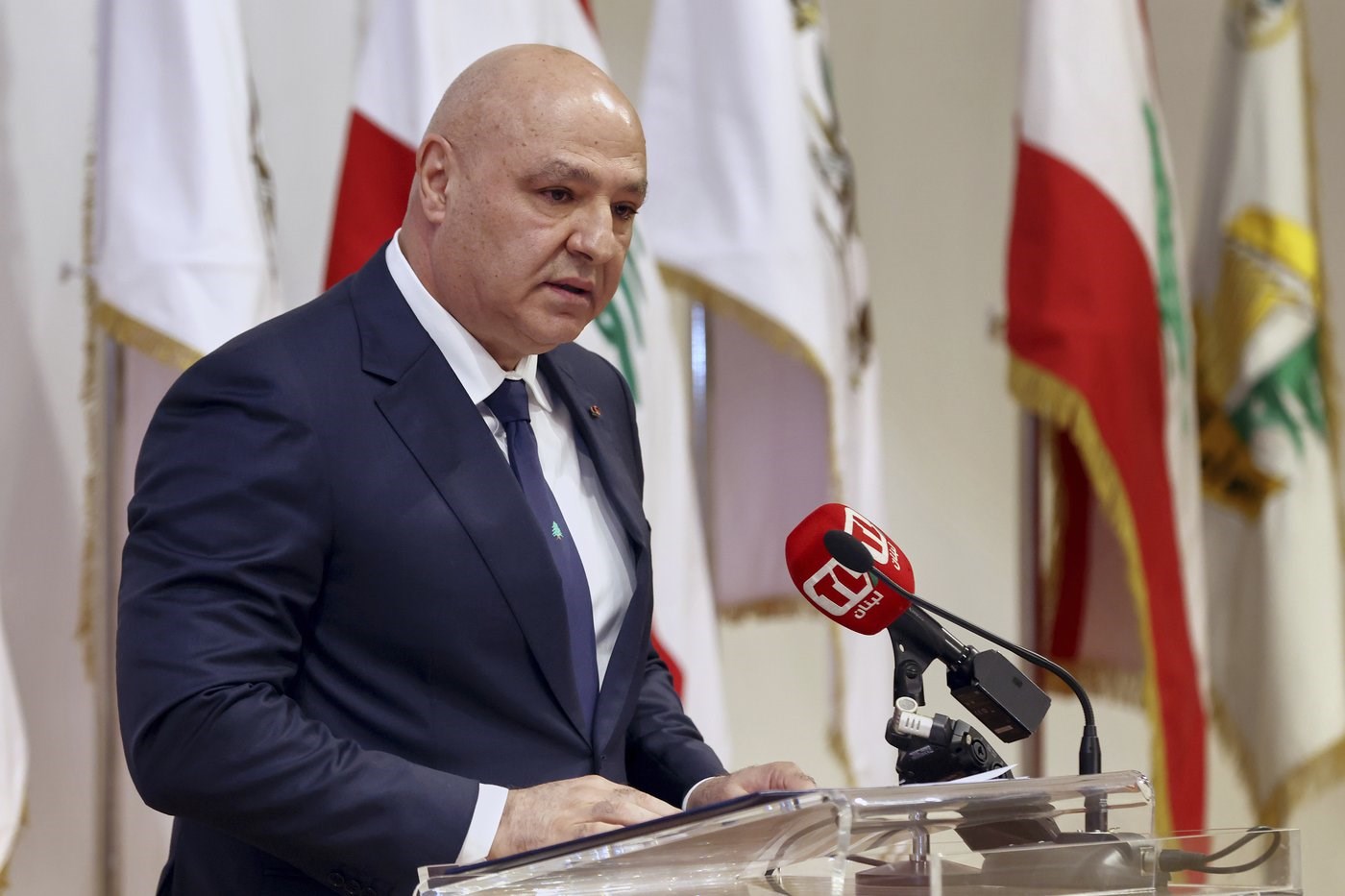
In this photo released by the Lebanese Presidency press office, Lebanese President Joseph Aoun speaks during a ceremony marking Army Day at the Lebanese Defense Ministry in Yarzeh, near Beirut, Lebanon, Thursday, July 31, 2025. (Lebanese Presidency press office via AP)
Republished July 31, 2025 - 3:32 AM
Original Publication Date July 31, 2025 - 1:46 AM
BEIRUT (AP) — Lebanese President Joseph Aoun reiterated calls for the militant group Hezbollah to give up its weapons, a day after the group’s chief doubled down on its refusal to disarm.
Aoun’s comments Thursday during a speech marking Army Day in Lebanon came as pressure increases from Washington to disarm Hezbollah.
The U.S. presented Lebanon with “draft ideas to which we have made fundamental amendments that will be presented to the Cabinet early next week," Aoun said.
Under the Lebanese proposal, there would be an “immediate cessation of Israeli hostilities” in Lebanon, including airstrikes and targeted killing, a full withdrawal of Israeli forces from southern Lebanon and the release of Lebanese prisoners held in Israel, Aoun said.
Lebanon, for its part, would implement the “withdrawal of the weapons of all armed forces, including Hezbollah, and their surrender to the Lebanese Army,” he said.
The comments came after a speech Wednesday by Hezbollah leader Naim Kassem that called the group’s weapons “part of Lebanon’s strength” and said “anyone who demands the delivery of weapons is demanding the delivery of weapons to Israel.”
Hezbollah officials have said they will not discuss giving up the group’s remaining arsenal until Israel withdraws from all of Lebanon and stops its strikes.
Aoun said Lebanon’s proposal also calls for international donors to contribute $1 billion annually for 10 years to beef up the Lebanese army's capabilities and for an international donor conference to raise funds in the fall for reconstruction of Lebanese areas damaged and destroyed during last year’s war between Israel and Hezbollah.
The war nominally ended with a U.S.-brokered ceasefire in November calling for Hezbollah and Israeli forces to withdraw from the area south of the Litani River in Lebanon, which would be patrolled by a beefed-up Lebanese army, along with U.N. peacekeepers.
The agreement left vague how Hezbollah’s weapons and military facilities north of the Litani River should be treated, saying Lebanese authorities should dismantle unauthorized facilities starting with the area south of the river.
Hezbollah maintains the deal only covers the area south of the Litani, while Israel and the U.S. say it mandates disarmament of the group throughout Lebanon.
Since the the ceasefire took effect, Israel has continued to occupy five border points in Lebanon and carry out almost daily airstrikes that Israel says are aimed at preventing Hezbollah from rebuilding its capabilities.
News from © The Associated Press, 2025